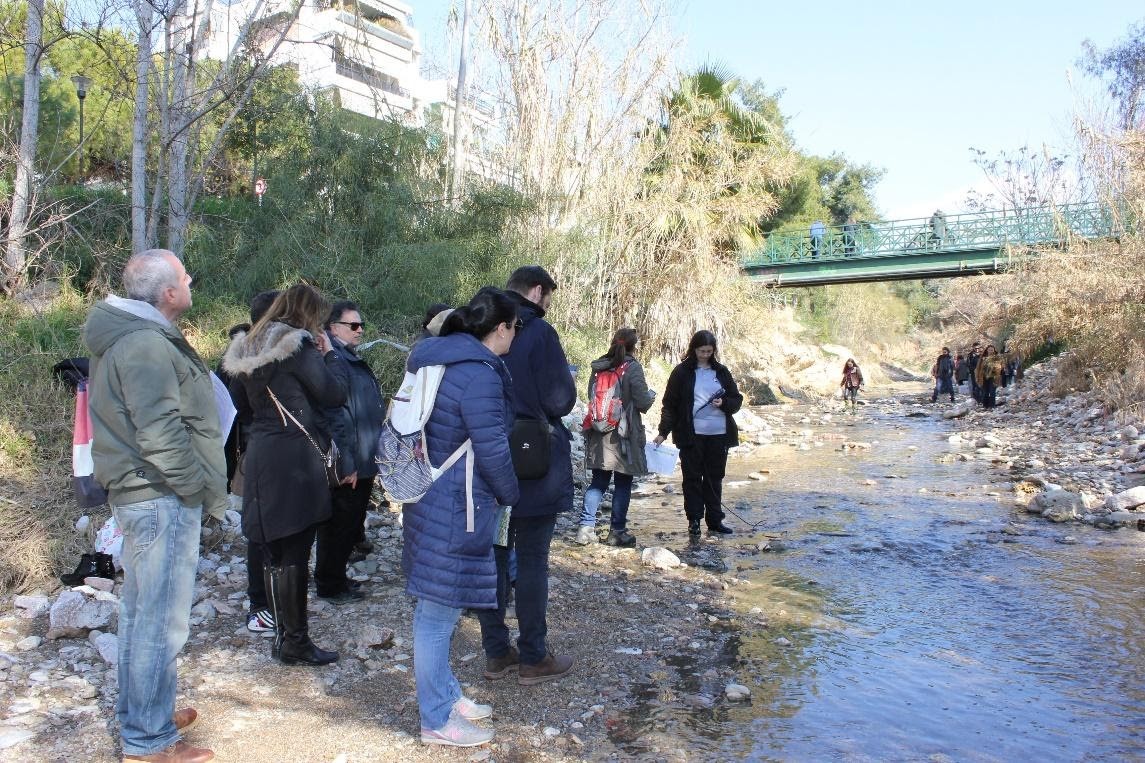Climate change adaptation of wetlands in Attica Region, Greece
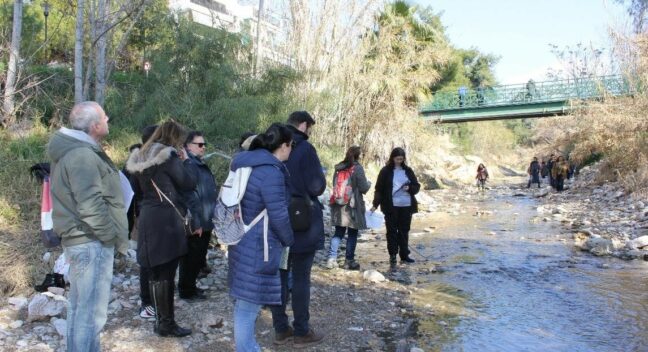
Geographic context and climate challenges
Attica is a region of Greece with extensive wetlands that includes estuaries, streams, lagoons, lakes and coastal marshes. Wetlands are important elements of the natural environment for the conservation of the ecosystems, recreational areas and areas of economic development. They are particularly important in reducing the impacts of floods, while their vegetation stabilizes and protects coastal areas, mitigating the impacts of waves and currents. They also improve water quality by trapping particles, sediments and toxic substances. Attica wetland areas are also highly used for agricultural purposes and various economic human activities that, in the last decades, have degraded their natural environment. Indeed, the region faces the combined challenges of a growing population and competing land-use demands. Current human pressures are exacerbated by climate change impacts, which could lead to the disappearance of many transitional wetland systems, while others are expected to shrink.
In the Attica region climate changes are expected to increase the frequency of drought periods, which would last longer and occur more frequently, with serious effects on wetlands which are rain-fed. According to the results of the OrientGate project, co-funded by the EU South East Europe Transnational Cooperation Programme, vulnerability to drought in the region is expected to increase by 2100 from low to moderate levels under the IPCC A1B emission scenario. A decrease in precipitation is also projected in autumn across the region under the A1B scenario by 2100, while slight increases are projected in spring.
Given these challenges, the Attica Regional Authority guided the process which defined the adaptation strategy and the action plan aiming to reduce the vulnerability of Attica’s wetlands and increase their adaptation capacity, prioritizing particularly vulnerable areas and improving stakeholder’s capacity to cope with climate change.
Objectives
The overall objective of the adaptation strategy and the action plan developed for Attica’s wetlands is to improve the environmental quality of the ecosystems and the quality of life of citizens of the region. Specific objectives include:
- Sustainable management and restoration of wetlands;
- Interconnection of wetlands through green corridors for protecting biodiversity and facilitating its movement;
- Socio-economic evaluation of the ecosystem services provided by the wetlands;
- Awareness raising, environmental education and public participation.
Adaptation measures implemented in the case
Adaptive management of natural habitats
Awareness raising and capacity building for climate change adaptation
Restoration and management of coastal wetlands
Solutions
To face the expected climate change impacts and to safeguard the wetland ecosystems, the Attica Regional Authority, the Greek Biotope Wetland Centre (EKBY) and the EU OrientGate project developed an adaptation strategy and an action plan that commit the region to the conservation and restoration of wetlands, aiming to increase their resilience, reduce biodiversity loss and make a better use of ecosystem services. The strategy and the action plan were developed during the lifetime of the OrientGate project, 2012-2014. The strategy identified seven axes under which specific and priority measures have been determined in the Action Plan:
- Axis I – Improving knowledge on wetlands and on the effects of climate change. Measures: improving knowledge; ensuring access to data and information and monitoring the implementation of the Strategy.
- Axis II – Conservation and restoration of wetland ecosystems and their services and adaptation to climate change. Measures: designate protected areas; protect, guard, conserve and restore; conserve and manage sustainably wetlands of the Natura 2000 network.
- Axis III – Sustainable use of water resources. Measures: prevent and abate industrial pollution.
- Axis IV – Land use regulations. Measures: promote the concept of a compact and non-polluting city.
- Axis V – Information, awareness and ecotourism. Measures: strengthen public information and awareness programs for wetlands in Attica and climate change adaptation; promote education on wetlands; highlight the wealth of wetlands in Attica, improve recreation and ecotourism opportunities.
- Axis VI – Improvement of adaptive capacity in regard to wetland conservation and management. Measures: improve capacity of public administration and local authorities.
- Axis VII: Integration of wetland conservation in enterprises. Measures: promote wetland conservation and innovative best practices in entrepreneurship.
Some progress towards the implementation of the action plan was achieved within the project “Improving knowledge and increasing awareness for wetland restoration in Attica Region” (2015 – 2017), funded by the EEA Financial Mechanism and national funds. The project aimed at further improving the knowledge and increasing awareness on climate change impacts for 50 Attica wetlands, in order to take the necessary precautionary measures for protecting, managing and restoring these wetlands. Main project results were:
- Improved access to environmental information necessary to protect and restore wetlands
- Increased knowledge and awareness on wetlands
- Scientific documentation for the delineation of 54 wetlands, research for biodiversity and threats, and proposals for rehabilitation, as well as cartographic imprinting of the wetland boundaries and recording of inventory data on an electronic basis
- Detailed assessment of water quality, wetland conservation status and water management needs for four water bodies: Vourkari (coastal wetland in Megara municipality) and Koumoundourou Lake (in Aspropyrgos municipality) both in west Attica region, the mouth of Pikrodafni Stream (in south Athens) and National Park Schinias (coastal wetland and Natura 2000 site) in east Attica region
- Green Week 2015 – satellite event: “Raising support to restore the wetland of “Brexiza”, in the Region of Attica, Greece” coordinated by Region of Attica and EKBY, with the participation of the Archaeological Service of East Attica, municipality of Marathon and the technical support of the Collective Planning and Design (CPD) team, offered the opportunity for a synergy with social partners from public administration, local government, the private sector to promote information and awareness-raising actions related to the protection and conservation of the wetland of Brexiza.
- The characterisation of Vourkari wetland as a “Regional Park” by Presidential Decree, in March 2017, lead to the implementation of the measure “Completion of the designation of the area of Vourkari Megara Wetland as a Regional Park” of the Action Plan. The incorporation in the national legislation (law 4559), in August 2018, of the boundaries of 15 “first priority for delineation” wetlands has also implemented part of the measure ”Delineation and institutionalization of the wetlands of Attica with an area of more than 80 acres” of the Action Plan.
Finally, as the Region of Attica is at the last stage of finalising its Regional Plan for Adaptation to Climate Change (RePACC) there has been a vulnerability assessment/risk analysis in several sectors including biodiversity/forestry ecosystems and water resources/floods using RCP4.5 and RCP8.5 scenarios for two future periods (2031-2050 and 2081-2100). Therefore, the measure “Assessment and periodic updating of climate indicators for drought – water scarcity and floods, with climate forecasting models, for the territory of the Region of Attica, and exploring the impact on biodiversity” of the Action Plan for Attica’s wetlands has also been partially implemented.
Leader of the initiative and key partners
The adaptation strategy and action plan for Attica’s wetlands were developed within the OrientGate project by the Environmental Department of Attica Regional Authority with the scientific support of the Greek Biotope Wetland Centre (EKBY) of the Goulandris Natural History Museum. The Attica Regional Authority drove the entire process and drafted a road map to promote the implementation of the actions of the plan, while the EKBY provided the scientific support. In addition to two main institutions, the collaboration expanded to central, regional and local services and authorities, research agencies, environmental organizations and citizens. Although they participated to a minor extent, they provided their knowledge, experience and practices within the adaptation process.
Concerning the actual implementation of the Action Plan, the competent authorities are the central government for the legislation-related issues and the local administrations (Attica Region and its municipalities) for the implementation of the interventions. For some of the Attica wetlands, which are characterised as Natura 2000 sites, the Management Body of Schinias Marathon National Park, Hymettus and South-East Attica is also a competent authority for the implementation of the Action Plan.
Stakeholder participation
Since the beginning, the participative process for the definition of the strategy and action plan had been consistent. Indeed, the Attica Region Authority engaged a wide range of stakeholders, including central, regional and local authorities, research agencies, environmental organizations and citizens. Stakeholders were encouraged to take action and to participate through interviews, meetings, workshops and seminars, through which perspectives, experiences, good and bad practices were exchanged.
Training sessions were also organised. Participants from public services, NGOs, research institutes and foreign participants from Serbia and Romania were involved in the training seminar “Adaptation strategy for Attica wetlands: the assessment of wetland vulnerability index”. After that, a dissemination event took place and registered around 80 participants from different groups of stakeholders, who received information on wetland vulnerability to drought and on the adaptation action plan. The Regional Plan for the Adaptation to Climate Change (RePACC) of Attica assesses the vulnerability/risk analysis in several sectors (agriculture, fisheries, forestry, water resources, etc) and elaborates an action plan for adaptation to climate change. For that purpose, a video conference took place on the 22nd of July 2020, specifically focused on the biodiversity sector, including Attica’s wetlands, with the major public administration stakeholders and the scientists who worked in that area. Attica’s RePACC was under public consultation for the period 1-15 December 2020.
Success and limiting factors
The following factors were relevant for the design of the adaptation strategy and plan:
- A strict focus on the conservation and protection of wetland ecosystems also considering additional pressures due to climate change threats.
- Stakeholders’ contribution to the process since its beginning. The participative approach allowed exchanging experiences, good and bad practices as well as discussing strengths and weaknesses in light of the management and protection of wetland ecosystems and the promotion of climate adaptation.
During the elaboration of the adaptation strategy and the adaptation plan, particular hindering factors did not emerge. Some difficulties arose in the exchange of data among the scientific community, the central and regional authorities and policy makers, in particular in relation to the integration of climate change knowledge into adaptation planning and policy. Greater limitations are expected in the implementation phase, for example related to the availability of funds, the relatively limited operational capacity to activate the proposed adaptation measures and the regulation of land uses in view of wetland protection and restoration. In measures that institutional or regulatory legislation is to be preceded, further delays in their implementation may take place.
Costs and benefits
The development of the adaptation strategy and the action plan for Attica’s wetlands was co-funded by the OrientGate project and national funds for a total of 150.000 Euros. This sum included travel and dissemination expenses. The following project “Improving knowledge and increasing awareness for wetland restoration in the Attica Region” was co-funded with 85% coming from the EEA Financial Mechanism and 15% from national funds (Greek Public Investment Programme), for a total budget of about 398.887 Euros.
The implementation of the strategy and plan is expected to have beneficial effects on Attica’s wetland conservation and restoration and consequently on their resilience to climate-related impacts. Indeed, wetland restoration is expected to mitigate the impacts of floods, to stabilize coastal areas through improved vegetation and consequent reduction of coastal erosion, to improve water quality, to support economic activities and to ameliorate citizens’ life. Further benefits include the improvement of the knowledge and management capacity of climate change impacts and of wetland ecosystems for the agencies involved in their conservation, as well as the enhancement of environmental awareness and the development of information centres.
Contacts
Argyro Paraskevopoulou
Attica Region
Polytechneiou 4, Athens, 104 33, Greece.
Tel.: (30-213) 2101-133, -136
Email: argyro.paraskevopoulou@patt.gov.gr
Dr. Eleni Fitoka
Greek Biotope Wetland Center (EKBY)
14th kilometer Thessaloniki – Mihaniona
57001 Thermi, Thessaloniki, Greece
Tel.: (30-231) 0473432
Email: helenf@ekby.gr
Source for more detailed information
Attica wetlands
Orientgate project
Map
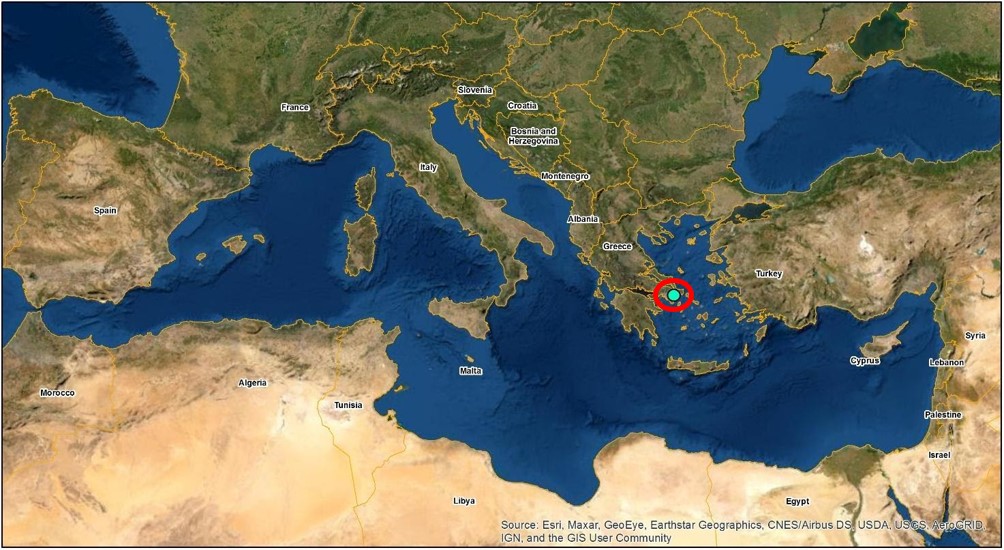
Pictures
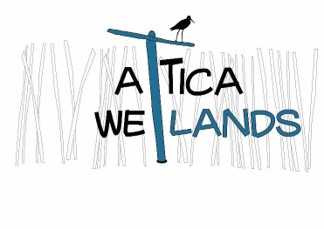
Project’s logo
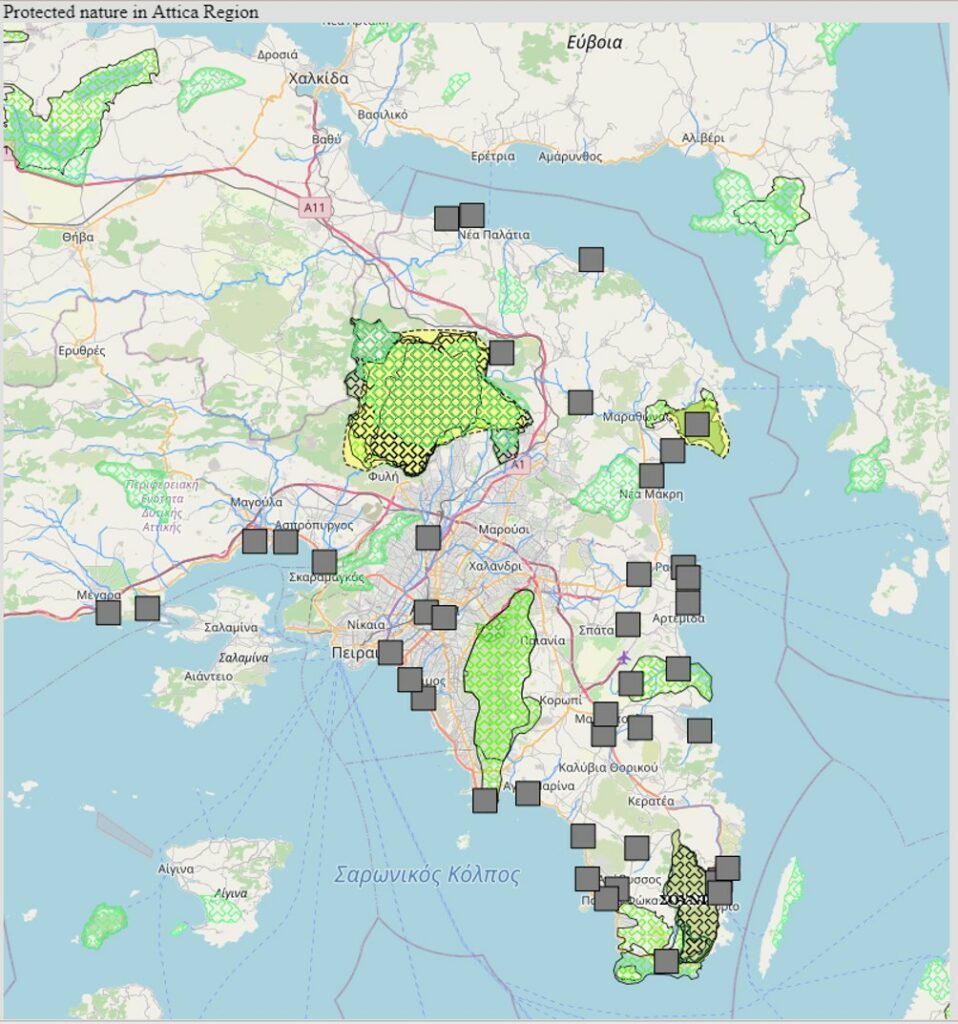
Project’s geo-platform (snapshot). Protected nature in Attica, grey squares representing wetlands
Source: http://sdi.atticawetlands.eu/?lang=en (Access on 27 April 2021)
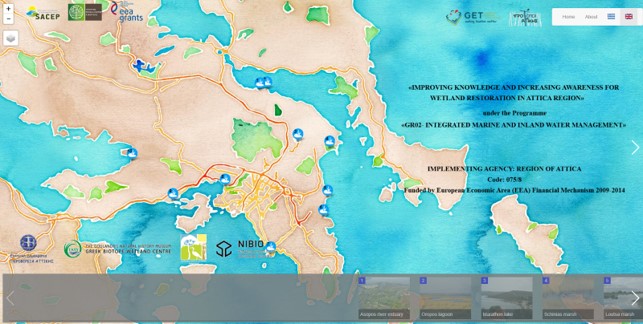
Interactive story map of the project for improving knowledge and increasing awareness for wetland restoration in Attica Region (snapshot)
Source: http://mapstory.atticawetlands.eu/?lang=en_GB (Access on 27 April 2021)
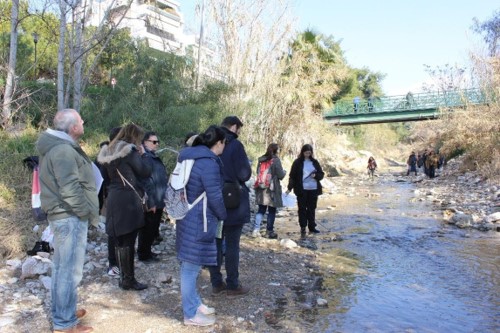
Seminar at Pikrodafni stream, February 2017 (©Attica Region)
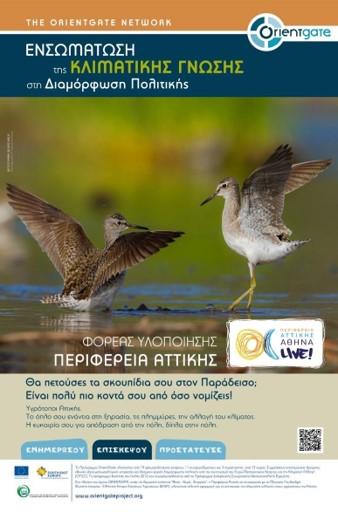
Poster for dissemination purposes placed in metro stations in Athens (November 2014)
Documents
Leaflet: Wetland adaptation in Attica Region, Greece (Pilot Study 4)

